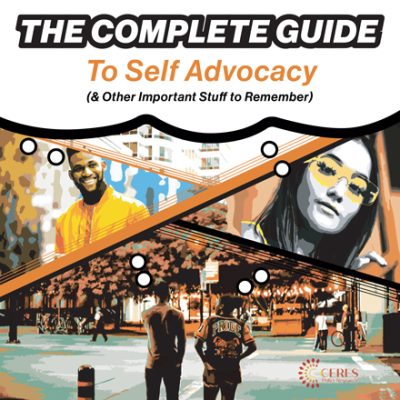Summary
This guide provides tips, strategies and resources to LGBTQ youth, ages 14-21, who are exiting the youth justice system. Its purpose is to help young people take charge of their own decision making and build essential life skills. The guide provides short exercises to help youth set goals, navigate juvenile probation, find meaningful employment, succeed in school and practice self-care, self-discovery and self-advocacy.
The guide offers advice from young people who have navigated being part of the youth justice system as well as service providers who serve them.
View our webinar about this guide
It recognizes the importance of giving young people the opportunity to be leaders in their own reentry process as they exit the youth justice system. Letting young people take charge of their decisions and feel they have a sense of agency in their own case planning helps build essential skills needed in their day-to-day lives to advocate for themselves and their needs — skills that will serve them well into adulthood and for the rest of their lives.
Creating a world where LGBTQ youth are seen, safe and supported
When providing services to LGBTQ youth exiting the youth justice system, the goal should be to make sure youth develop the skills necessary to move forward, advocate and care for themselves and create a future that includes a supportive community and opportunities for success in whatever they choose to pursue.
Young people navigate their lives under the weight of justice system involvement
Justice system involvement for young people is connected to myriad difficulties and challenges that may stay with them through adulthood. It is well-documented that some of these challenges include disconnection from education that limits professional and economic opportunities, access to resources and a social network; housing insecurity; and poor mental and physical health. This is particularly true for Black and Latino system-involved youth and even more so for lesbian, gay, bisexual, questioning, gender nonconforming and transgender youth of color, who are overrepresented in the youth justice system.




